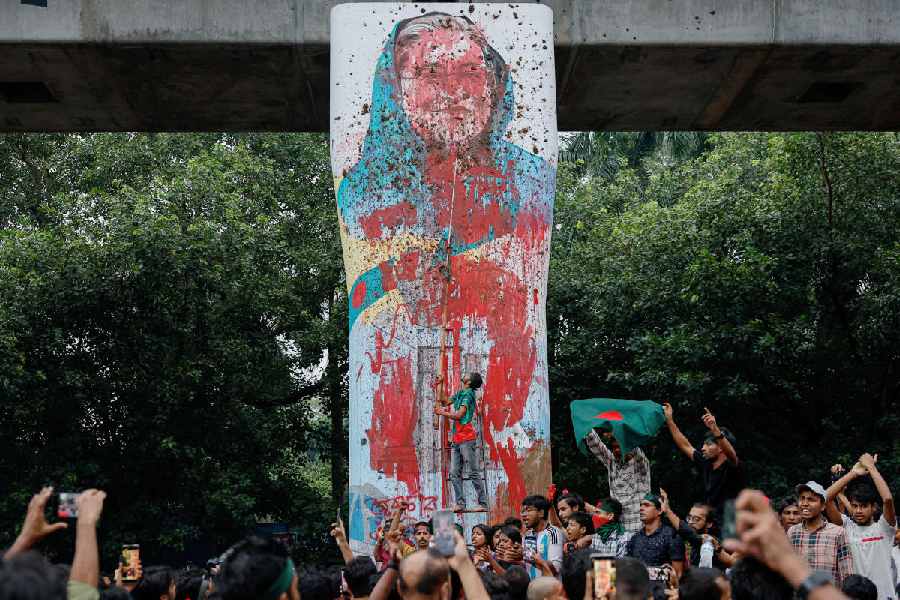Over a month after Sheikh Hasina Wazed resigned as the prime minister of Bangladesh, the country’s tumultuous transition from 15 years of her rule is still very much a work in progress. But signs emerging from the fledgling rule of an interim government headed by the Nobel laureate, Muhammad Yunus, indicate that the journey ahead for Bangladesh will be challenging — and both New Delhi and Dhaka will need to carefully rebuild the trust that has long characterised their relationship. At home, Mr Yunus faces some of the challenges that any government that comes to power after the overthrow of a regime would confront. Over her long rule, Ms Wazed, her critics insist, had blurred the lines between her party, the Awami League, and the State, packing institutions, including law enforcement agencies, with party loyalists. While many of those officers might be capable professionals in their own right, they no longer enjoy public trust in the current political climate of Bangladesh. More broadly, security agencies lost their credibility in the eyes of the public during the weeks of often brutal crackdown they led under Ms Wazed against the student protesters in the lead up to Ms Wazed’s ouster. Until Mr Yunus and his team are able to rebuild the legitimacy of the police, maintaining law and order will be difficult.
An internal security vacuum, in turn, could complicate efforts to bring under control the continuing violence against religious minorities and those associated with the Awami League. Meanwhile, the Opposition Bangladesh Nationalist Party and the Islamist outfit, Jamaat-e-Islami, are growing in influence, once again. All of this points to a harsh reality for Mr Yunus. His apolitical background may have made him a consensus candidate for leader of the nation for millions craving for change after
Ms Wazed but his honeymoon period is running out. So will the nation’s patience. Even before the political crisis that led to Ms Wazed’s removal, Bangladesh’s economy was headed towards a crisis, with growth curtailed in recent years. The country is now negotiating for loans from the International Monetary Fund. Those loans will hinge on economic reforms, including potential social security cuts and raised taxes, that could be unpopular domestically and could also affect political stability.
Bangladesh’s stability has also long relied on its close relations with India — ties that have hit a rough patch over the past few weeks. Bangladesh’s interim government has indicated that it might seek Ms Wazed’s extradition from India — where she is in exile — to Dhaka where she has been charged with a slew of cases. In recent comments, Mr Yunus suggested that if India wanted to shelter Ms Wazed for now, it must ensure that she does not issue public statements. Both countries have said they want to work together. But if they are to re-establish confidence in a partnership important for both, they need to start by moving away from rhetoric that further poisons their troubled ties. Dhaka and New Delhi know that is Diplomacy 101.











